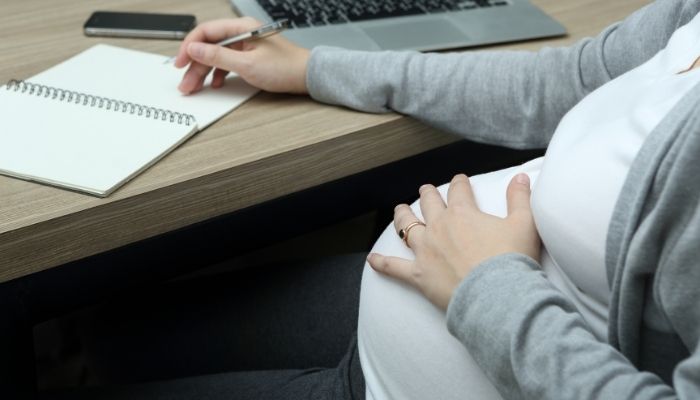Written by: Karan Arora
‘Labour’ falls under the Concurrent List of the Constitution. The Parliament and the State Legislatures both have the power to make and enact laws that regulate labour. While this has allowed the Centre to enact general labour laws, and States to enact laws to tackle issues that plague workers in their region, it has also led to the unfortunate situation of there being over 100 state and 40 central laws regulating various aspects of labour.
The Second National Commission on Labour (2002) had found existing legislation to be complex, with archaic provisions and inconsistent definitions. To improve ease of compliance and ensure uniformity in labour laws, the NCL had recommended the consolidation of central labour laws into broader groups such as (i) industrial relations, (ii) wages, (iii) social security, (iv) safety, and (v) welfare and working conditions.
Based on these recommendations, the Ministry of Labour and Employment introduced four Bills on labour codes to consolidate 29 central laws in 2019. The government then replaced these Bills with new ones in September 2020, after taking into consideration the feedback received by it on the first set of Codes.
What Is The Code Of Social Security 2020?
The Code of Social Security 2020 (hereby, Code) is one of the four new labour codes introduced by the Ministry of Labour and Employment. The Code of Social Security 2020 subsumes the following enactments:
1. The Employees’ Compensation Act, 1923;
2. The Employees’ State Insurance Act, 1948;
3. The Employees’ Provident Funds and Miscellaneous Provisions Act, 1952;
4. The Employment Exchanges (Compulsory Notification of Vacancies) Act, 1959;
5. The Maternity Benefit Act, 1961;
6. The Payment of Gratuity Act, 1972;
7. The Cine- Workers Welfare Fund Act, 1981;
8. The Building and Other Construction Workers Welfare Cess Act, 1996; and
9. The Unorganised Workers’ Social Security Act, 2008
In the process of subsuming these Acts within the Code, the Ministry of Labour and Employment has decided to also repeal them. This means that these Acts will cease to be in force on the date the Code is enacted.
The Code was passed by the Lok Sabha on September 22, 2020 and subsequently, by the Rajya Sabha on September 23, 2020. The Code received the President’s assent on September 28, 2020. The official gazette informing the date when the Code comes into effect is yet to be released.
Is The Maternity Benefit Act, 1961, Gone?
As mentioned before, the Maternity Benefit Act, 1961, will be repealed by the Central Government and all its provisions have been transplanted into the Code of Social Security with some changes. From the day the Code comes into force, women working in various establishments will no longer be able to seek maternity benefits under the Maternity Benefit Act, 1961, and will have to instead seek such benefits under the Code of Social Security 2020.
What Has Changed?
1. Inspector-cum-Facilitator
Section 14 of the Maternity Benefit Act, 1961, gave the appropriate Government the power to appoint Inspectors for the purposes of enforcing the provisions of the Act. Under the Code of Social Security 2020, the duties of enforcing the provisions of the Code have been given to a new authority, the Inspector-cum-Facilitator.
The powers of the Inspector-cum-Facilitator under the Code of Social Security are similar to those of the Inspector of the Maternity Benefit Act, 1961 – they may, at any reasonable time, enter any establishment where women are employed or work is given to them, examine and speak to any person who they reasonably think is an employee, and require the employer to give information regarding the names and addresses of women employed, and payments made to them.
The Inspector cum-Facilitator also has the power to inquire into complaints of non-compliance of the provisions and pass orders that they deem just and proper based on the circumstances of the complaint.
2. Application Of Aadhar
As per Section 142 of the new Code, any employee or worker in the unorganized sector seeking maternity benefits under the Code will have to establish her identity, and the identity of the person nominated to receive maternity benefits in the event of her death, through an Aadhaar number. Without an Aadhar Number, no woman will be able to avail maternity benefits. There was no such requirement under the Maternity Benefit Act, 1961.

3. Punishments
The new code has also enhanced the punishment applicable in case an employer contravenes the provisions of the Code with respect to maternity benefits. Under Section 133 of the Code, any person who, as an employer, fails to provide maternity benefit to which a woman is entitled to under the code, will find themselves punished with imprisonment for a term which may extend to six months or with a fine which may extend to INR 50,000, or with both.
This is in contrast to the Maternity Benefit Act, 1961, which stipulated imprisonment of no less than three months but which could extend to one year, and with fine of no less than INR 2000 but which could extend to INR 5000.
In the event such a person repeats the offence of not providing maternity benefits to a woman who is entitled to it under the code, they will be punishable with imprisonment for a term which may extend to three years but which shall not be less than two years and shall also be liable to fine of INR 3,00,000. This is far more stringent compared to the Maternity Benefit Act, 1961 which, in the case of repeated offences, stipulated punishment with imprisonment which could extend to one year, or with fine which could extend to INR 5000, or with both.
When the offence of not providing maternity benefits to a woman entitled to it under the Code is committed by a company, every person who, at the time the offence was committed, was directly in charge of, and was responsible to, the company for the conduct of the business of the company, as well as the company, shall be deemed to be guilty of the offence and shall be liable to be proceeded against and punished accordingly.
Furthermore, where such offence has been committed by a company and it is proved that that the offence was committed with the consent or connivance of, or is attributable to any neglect on the part of, any director, secretary or other officer of the company, such director, secretary or other officer shall also be deemed to be guilty of that offence and shall be liable to be proceeded against and punished accordingly.
However, if such director, secretary or other officer proves that the offence was committed without their knowledge or that they exercised all due diligence to prevent the commission of such offence, no action will be taken against them.
4. Prior Opportunity Before Prosecution
The Inspector cum-Facilitator, before initiation of prosecution proceeding against an employer for not providing maternity benefits to a woman entitled to it under the Code, shall give an opportunity to the employer to comply with the relevant provisions by way of a written direction, which shall lay down a time period for such compliance, and, if the employer complies with the direction within such period, then, no such proceeding shall be initiated against the employer.
However, no such opportunity shall be accorded to an employer, if the violation of not providing maternity benefits is repeated within a period of three years from the date on which such first violation was committed. In such cases, the prosecution shall be initiated in accordance with the provisions of Chapter XII of the Code.

5. Office Bearers Of Trade Unions Can’t File Complaint In Court
In addition to an aggrieved woman who was denied maternity benefits and the Inspector, section 23 of the Maternity Benefit Act, 1961, allowed any office-bearer of a trade union registered under the Trade Unions Act, 1926 (16 of 1926) of which an aggrieved woman is a member or a voluntary organisation registered under the Societies Registration Act, 1860 (21 of 1860) to file a complaint regarding the commission of an offence under this Act in any court of competent jurisdiction.
However, such office bearers and voluntary organisations can no longer do so. Under Section 136 of the Code, only the aggrieved woman and the Inspector-cum-facilitator can approach a court of competent jurisdiction to take cognizance of any offence.
All other provisions of the Maternity Benefit, Act 1961, remain intact under the Code of Social Security. You can read it by clicking on the next link.
About The Author: Karan Arora is a final year law student with a keen interest in labour laws and labour compliance.
Ungender Insights is the product of our learning from advisory work at Ungender. Our team specializes in advising workplaces on workplace diversity and inclusion. Write to us at contact@ungender.in to understand how we can partner with your organization to build a more inclusive workplace.










